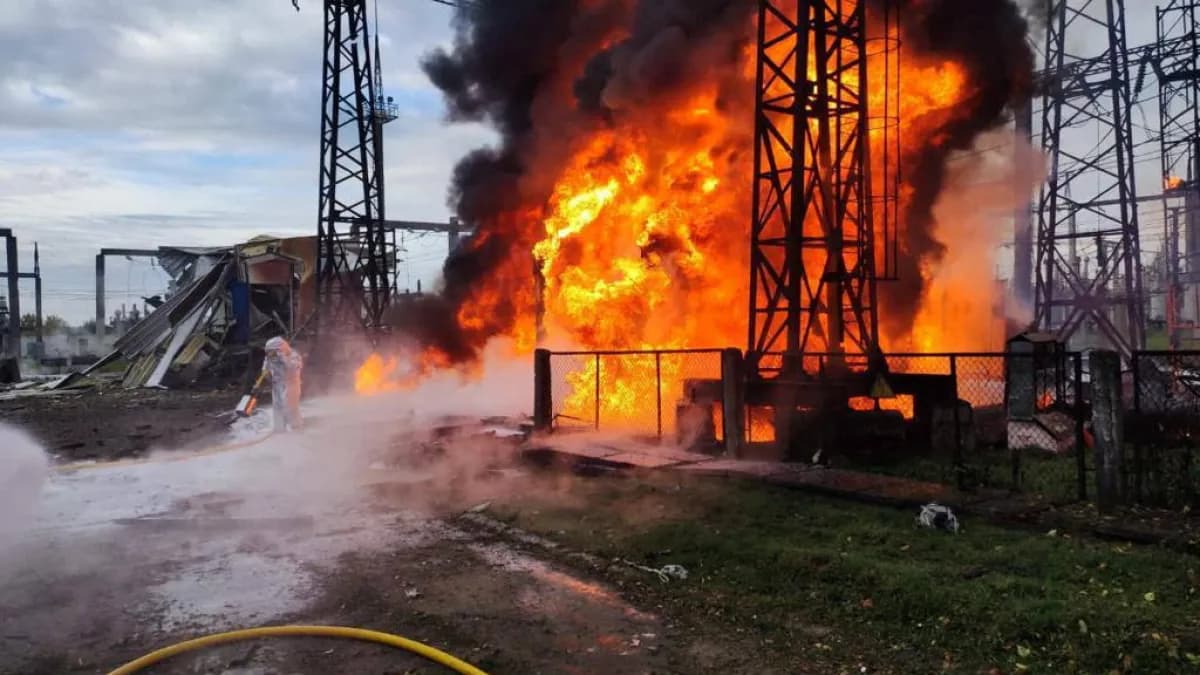We're loading the full news article for you. This includes the article content, images, author information, and related articles.
Emergency power outages have been implemented across nearly all of Ukraine following a renewed campaign of Russian air strikes on energy infrastructure, marking the fourth consecutive winter of blackouts since the 2022 invasion.

Ukrainians are facing widespread emergency power outages across almost all regions as Russia intensifies its aerial assault on the country's energy infrastructure. This marks the fourth consecutive winter that Ukrainian citizens will endure blackouts since Russia's full-scale invasion began in February 2022.
The Ukrainian Energy Ministry confirmed on Tuesday, October 15, 2025, that all but two regions were affected by the emergency power cuts. Only the eastern Donetsk region, which is at the forefront of the war, was exempt, while the northern Chernihiv region was already experiencing hourly outages.
Russia's strategy of targeting Ukraine's energy network has been a consistent feature of the conflict, particularly as winter approaches. These systematic attacks aim to deprive Ukrainians of electricity and heating during the cold months, impacting civilian morale and economic stability.
In response, Ukraine has escalated its own drone attacks on Russian oil refineries and other energy facilities, both in border regions and deeper within Russian territory.
The ongoing conflict and its impact on global energy markets have indirect implications for countries like Kenya. Kenya's National Energy Policy 2025–2034, released by the Ministry of Energy and Petroleum, aims to ensure an affordable, reliable, and sustainable energy supply to meet national development needs. The policy also seeks to position Kenya as a leader in the clean energy transition, with goals to provide clean power for all Kenyans by 2030 and achieve net-zero emissions by 2050.
Kenya has maintained a neutral stance on the Russia-Ukraine war, advocating for diplomacy and adherence to the UN Charter's principles of national sovereignty and territorial integrity. President William Ruto has emphasized that dialogue, not war, is the path to peace and an end to hostilities.
The human cost of the conflict continues to ripple globally. Ukraine has raised concerns about Kenyan nationals allegedly fighting alongside Russian troops, warning that Moscow may be using deceptive overseas job offers to recruit African youth. Ukraine's Ambassador to Kenya, Yurii Tokar, confirmed on Tuesday, October 15, 2025, that one Kenyan fighter, now a prisoner of war, admitted to being tricked into signing a military contract after entering Russia as a tourist.
Kenya's Ministry of Foreign Affairs is investigating these reports, with Principal Secretary Dr. Korir Sing'oei stating that 29 Kenyans are believed to be involuntarily held in Belgorod, near a major Wagner Group base. The Russian authorities, however, deny any government involvement in such recruitment.
The intensified attacks on Ukraine's energy grid pose a severe humanitarian risk as winter approaches, with experts warning of potential displacement of millions if attacks persist. The ongoing disruption to global energy supplies due to the conflict has also contributed to fuel shortages and price rises in some parts of Russia, a development Ukrainian leaders hope will impact Russia's war effort.
For Kenya, while geographically distant, the global energy market volatility stemming from the conflict can influence domestic fuel prices and economic stability.
The full extent of the damage to Russia's oil refining capacity due to Ukrainian drone strikes remains a subject of ongoing assessment. While some reports suggest a significant reduction, the precise long-term impact on Russia's ability to produce and export fuel is still unfolding.
The allegations of Kenyans being lured into fighting for Russia highlight the complex ethical and legal challenges of recruitment in conflict zones, particularly when economic desperation is a factor.
Observers will be closely watching the effectiveness of Ukraine's air defense systems against continued Russian strikes, particularly as winter deepens. The humanitarian response to the blackouts and the international community's support for Ukraine's energy sector will also be critical. Furthermore, the global energy market will remain sensitive to developments in the conflict, with potential implications for fuel prices worldwide.
Keep the conversation in one place—threads here stay linked to the story and in the forums.
Sign in to start a discussion
Start a conversation about this story and keep it linked here.
Other hot threads
E-sports and Gaming Community in Kenya
Active 9 months ago
The Role of Technology in Modern Agriculture (AgriTech)
Active 9 months ago
Popular Recreational Activities Across Counties
Active 9 months ago
Investing in Youth Sports Development Programs
Active 9 months ago